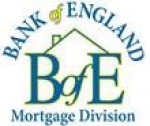If I take a 401K loan for buying home will it affect the bank loan?
If I want to take a loan from my 401K to increase my downpayment to buy a home, does it affect my loan amount? In other words, do they take into account the monthly amount I have to pay for the 401K loan to determine how much loan I can take from the bank? by taylor10 from Galveston, Texas. Jul 13th 2011
 SONNY BAKER (sonny@bedrocklending.com)
SONNY BAKER (sonny@bedrocklending.com)
#71 ranked lender in Texas - 10 contributions
Taylor10, this is the best possible way to use your 401 k for the down payment and NO since you are borrowing the money from yourself and paying back yourself the payment is not factored in as a debt against you for qualifying purposes. I highly recommend this approach - much better for you to pay interest to yourself and not incur any penalties or taxes by actually liquidating the 401k account. Feel free to email me directly at sonny@bedrocklending.com or call us at 866-445-3765
 MIKE CONVIN (mconvin)
MIKE CONVIN (mconvin)
#6 ranked lender in Delaware - 202 contributions
hi: If you would like to put less downpayment for the home, we can work with our private lenders offering lowering downpayment and NO MI lending nationwide. Rates are competitive (Mike 703 505 5300)
 Gianni Cerretani (mortgagegodfather)
Gianni Cerretani (mortgagegodfather)
#32 ranked lender in Georgia - 238 contributions
If you do take out a 401k loan and it is repayable through your monthly pay this amount will be deducted from your overall gross income calculations.
 Tom Winberry (wtom17@gmail.com)
Tom Winberry (wtom17@gmail.com)
#61 ranked lender in Arizona - 16 contributions
When a borrower uses his or her financial assets--life insurance policies, 401(k) accounts, individual retirement accounts, certificates of deposit, stocks, bonds, etc.--as security for a loan, the borrower has a contingent liability. We will not require that this contingent liability be considered as part of the borrower's recurring monthly debt obligations--as long as the lender obtains a copy of the applicable loan instrument that shows the borrower's financial asset as collateral for the loan. If the borrower intends to use the same asset to satisfy a financial reserve requirement, the value of the asset (the account balance, in most cases) must be reduced by the proceeds from the secured loan and any related fees to determine whether the borrower has sufficient reserves.
#0 ranked lender in Illinois - 2 contributions
On paper, 401(k) loans make sense. Interest rates are lower than those on credit cards or other types of loans and, unlike any other form of loan, the borrower is actually borrowing money from themselves. They are also paying themselves back, with interest. Unfortunately, a substantial portion of people default on the 401(k) loans they borrow. According to Time magazine, a survey by Fidelity, one of the largest 401(k) plan administrators, found a 401(k) loan default rate of 22 percent in 2010. A study by researchers from the Brookings Institute and Navigant Economics, according to CNN, found the rate was 17.4 percent between July 2011 and the end of May of this year, compared to 9.7 percent for the year that ended June 2008.
Ask our community a question.
